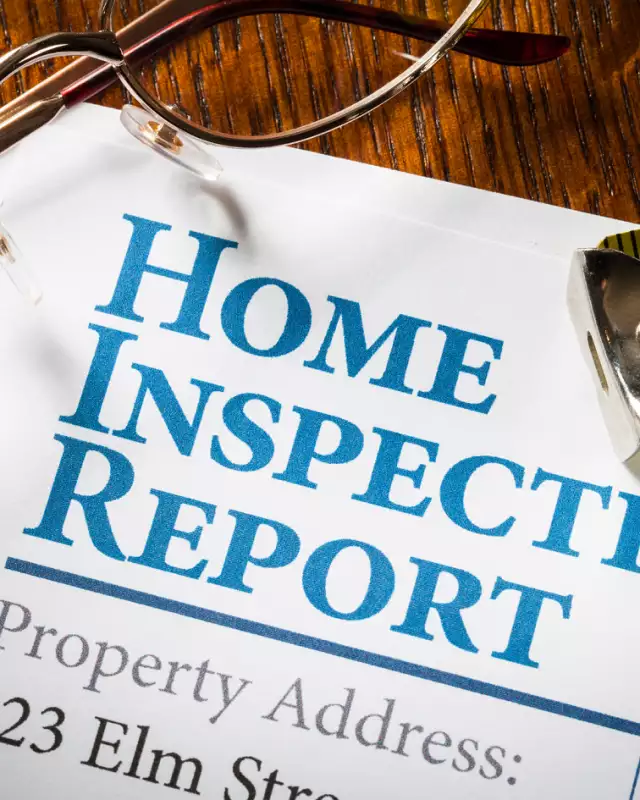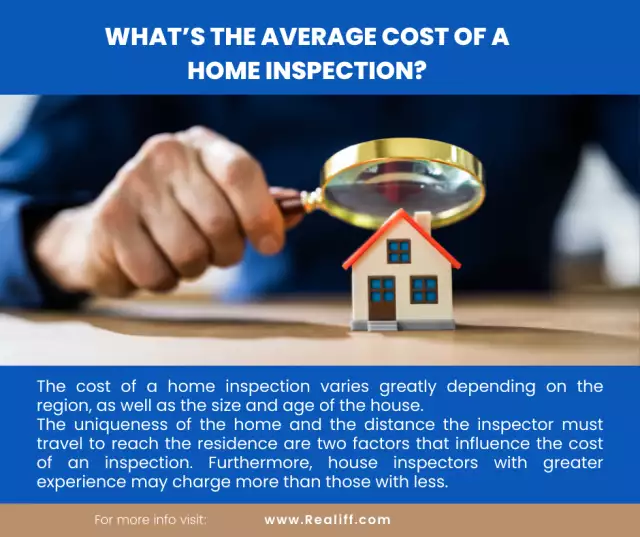The Importance of a Home Inspection: A Comprehensive Guide for Home Buyers
The Importance of a Home Inspection: A Comprehensive Guide for Home Buyers
Introduction:
A home inspectionis an essential part of the home-buying process. It gives potential buyers a detailed overview of the property's condition, including any potential issues or repairs that may need to be made. A home inspection can save you time, and money, and help you make an informed decision when buying a home.
What is a home inspection?
A home inspection is a comprehensive examination of a property, carried out by a licensed inspector. The inspector will examine the property inside and out, including the roof, walls, floors, electrical, plumbing, heating, and cooling systems, and any other key components of the home. The inspector will then provide a detailed report of their findings, including any issues that need to be addressed or repaired.
Why is a home inspection important?
A home inspection is an important step in the home-buying process because it helps identify any potential issues or problems with the property before you buy it. Having a clear understanding of the property's condition can help you make an informed decision and can also provide valuable information for negotiating the price or terms of the sale. Additionally, a home inspection can give you peace of mind and help you avoid any unexpected expenses after the purchase.
What is included in a home inspection?
A comprehensive home inspection typically includes the following areas:
- The structure of the home
- The roof, chimney, and gutters
- The exterior and interior walls, ceilings, and floors
- The electrical, plumbing, and HVAC systems
- The windows, doors, and insulation
- The appliances, including the stove, oven, and dishwasher
- The garage, if it's attached to the home
- The basement and crawlspace, if applicable
What to expect during a home inspection:
During the inspection, the inspector will examine the property inside and out, taking note of any issues or problems they find.They will also provide you with a detailed report of their findings, including any recommendations for repairs or improvements. You should plan to attend the inspection, as it's a great opportunity to ask questions and get a better understanding of the property.
What to do after the home inspection:
After the home inspection, you will have a clear understanding of the property's condition and any issues that need to be addressed. You can use this information to negotiate the price or terms of the sale, or you may choose to walk away from the property if the issues are significant. If the inspection reveals minor issues, you may choose to have the seller make the repairs or provide you with a credit at closing.
What are the most common problems found in home inspections?
During a home inspection, several issues may be uncovered that can range from minor cosmetic defects to major structural or systems problems. Some of the most common problems found in home inspections include:
- Roof problems: damaged or missing shingles, leaks, or other signs of wear and tear
- Plumbing issues: leaks, slow-draining sinks, outdated pipes, and more
- Electrical system issues: outdated wiring, overloaded circuits, and potential fire hazards
- HVAC problems: outdated systems, dirty filters, and inefficient operation
- Pest and moisture damage: evidence of termites, mold, or other pests
- Structural issues: settling or shifting foundations, cracks in walls or ceilings, and other signs of structural damage
It's important to note that these are not exhaustive lists and the specific problems found during an inspection can vary greatly depending on the age and condition of the property.
How much is a home inspection in California?
The cost of a home inspection in California can vary depending on several factors, including the size of the property, the age of the home, and the inspector's experience and reputation. On average, a home inspection in California can cost anywhere from $300 to $600. Some inspectors may charge a flat fee for the inspection, while others may charge an hourly rate. In addition, some inspectors may charge extra for certain services, such as a termite inspection or a pool inspection. It's best to compare the services and fees of several inspectors before selecting one for your home inspection.
FAQs
Q: What is a home inspection?
A: A home inspection is a thorough evaluation of a property’s condition, performed by a licensed professional inspector. The inspection covers various aspects of the property, including the roof, foundation, electrical, plumbing, and HVAC systems. The goal of the inspection is to identify any potential issues or problems with the property, so the home buyer can make an informed decision about their purchase.
Q: Who pays for the home inspection?
A: Typically, the home buyer pays for the inspection, but it’s not uncommon for the seller to offer to pay for it as part of the negotiations. The cost of the inspection can vary, depending on the size and location of the property, but it’s usually a small price to pay for peace of mind when making such a significant investment.
Q: Why is a home inspection important?
A: A home inspection is important because it gives the home buyer a clear understanding of the property’s condition, including any potential issues or problems that may need to be addressed. This information can be valuable in negotiating the price of the property or identifying potential problems before you make a final decision. It also helps to ensure that the home buyer is making a well-informed decision and minimizes the risk of any unpleasant surprises after the sale has been completed.
Q: What does a home inspector look for during the inspection?
A: A home inspector will evaluate various aspects of the property, including the roof, foundation, electrical, plumbing, and HVAC systems. The inspector will also examine the interior and exterior of the property, looking for any signs of wear and tear, damage, or other issues that may need to be addressed. The inspector will provide a written report that summarizes the findings and provides recommendations for any necessary repairs or improvements.
Q: Can I attend the home inspection?
A: Yes, it’s highly recommended that the home buyer attend the inspection. This provides an opportunity to ask questions and get a better understanding of the property’s condition. The inspector will also be able to provide a first-hand explanation of any issues or problems that are identified during the inspection.
Q: What if the inspection reveals issues with the property?
A: If the inspection reveals issues with the property, the home buyer has several options. They can renegotiate the purchase price to reflect the cost of any necessary repairs, request that the seller make the repairs before closing, or they may choose to walk away from the sale altogether. It’s important to consider the costs and implications of each option before making a final decision.
Conclusion:
A home inspection is an essential step in the home-buying process that can save you time, and money, and help you make an informed decision. By understanding what to expect during an inspection, you can get the most out of the process and ensure that you're making a smart investment. Don't hesitate to reach out to a licensed inspector for a comprehensive examination of the property before you buy.



